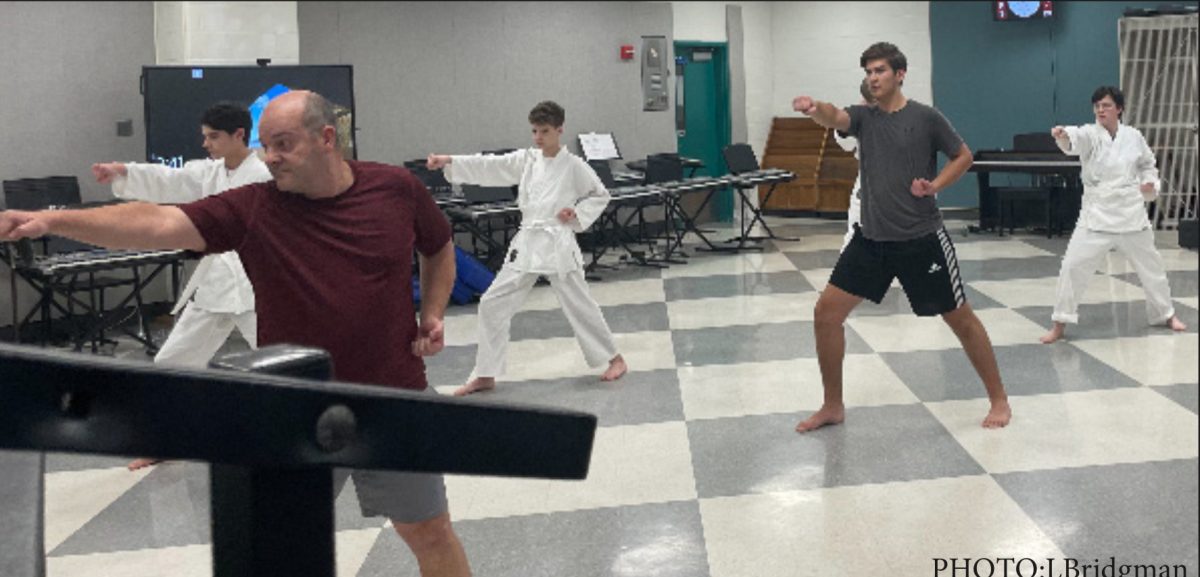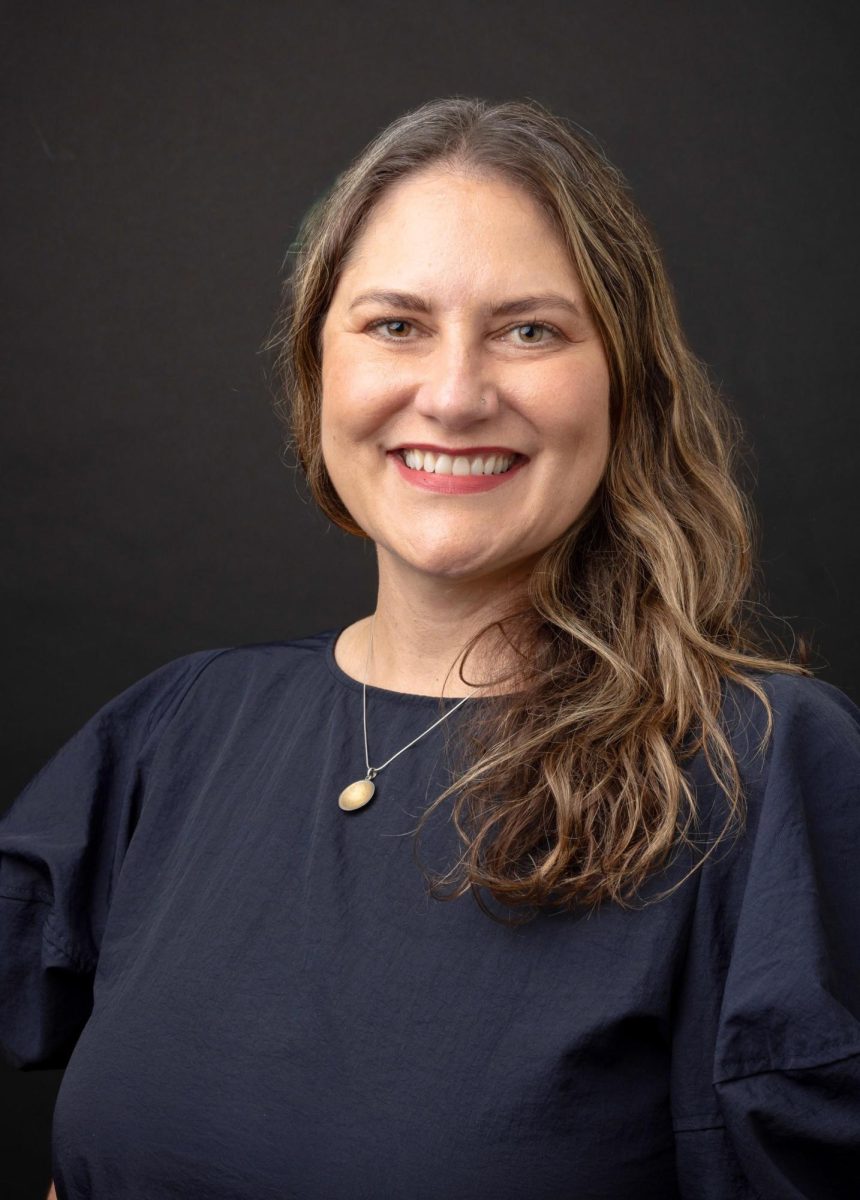Beyond just a series of punches, kicks, and well-deserved belts, there is a wide world of karate right at our fingertips.
ELHS welcomes Karate Club, helping students learn emotional control, focus, and exceptional sportsmanship. When freshman students, Lucas Scism and Cliff Sullivan, overheard their advisory teacher, Catherine Switaj, discussing her 20-year history with karate, they became curious.
They had just attended the club fair, and they asked Ms. Switaj if they could start a club of their own: Karate Club.
“The best way to learn something is to teach it to someone else,” black belt Ms. Switaj said. The main areas of distinction in Ms. Switaj’s specialty, Tang Soo Do, are in the high and forceful kicking techniques.
Additionally, combination and consecutive kicking are emphasized in the art. Learning karate heavily depends on observing and learning from other, experienced students. The martial arts mindset puts an emphasis on the honor and achievement of helping those who you’ve trained surpass you in
skill. This makes a substantial difference in minimizing egos within the sport.
Karate is seen as an individual sport, but because students depend, collaborate, and mentor one another, it’s really a team effort.
“Keeping it small for the first semester gave me the opportunity to really work with my first students and establish the culture of the club,” Ms. Switaj said.
Establishing a foundation within the club prior to bringing on additional members or instructors is essential to fostering a collaborative atmosphere with student leaders within the club. The club began with eight novice students, who Ms. Switaj taught on her own.
Ms. Switaj soon realized if she can’t be there one day, she has to cancel the whole practice as there would not be a teacher to supervise. Enter science teacher, Michael Labombard, who is now learning karate alongside the students.
In the future, Ms. Switaj wants to open up the club to faculty members who are interested in learning as well as students. This would allow them to train together without the teacher-student dynamic, giving them the chance to collaborate and improve one another.
The club begins with student-led warm ups, then they practice katas which are intricate movement patterns. There is a front and a back line, with more experienced students in the front. This is so the less experienced students in the back can observe and learn. Afterward, Ms. Switaj teaches them different moves, so they can eventually work up to sparring: the unstructured, cordial technique exchange between two karate practitioners. Students who joined the club in their freshman year are planned to graduate with their apprentice black belt.
On Jan. 11, 2024, students will participate in grading. A grading is a test they can take to achieve a higher rank. During the grading, a panel of highly ranked black belts will come in; 7-8 master belts and 6-7 black belts, to grade and award new belts to the students. Novice students can develop their self-defense skills and mental resilience, such as confidence, focus, and determination, by participating in Karate Club. If you wish to join, meetings are in the choir room Mondays and Tuesdays.


